Spring 2024
Tuesdays 2.00 - 4.00pm | Room 431 | SSEES, 16 Taviton Street, WC1H 0BW
9 January – Dr Ludovic Coupaye (UCL Anthropology)
"Exploring the Relations between Biodiversity & Technodiversity: Gardening in Papua New Guinea"
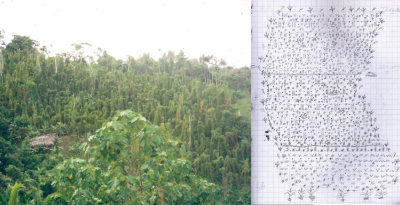
16 January – Jack Jenkins Hill (PhD student, UCL Anthropology)
"The Making, Remaking and Unmaking of the Forests in Myanmar: The Political Economy and Ecology of Conflict and Revolution in Southern Myanmar"
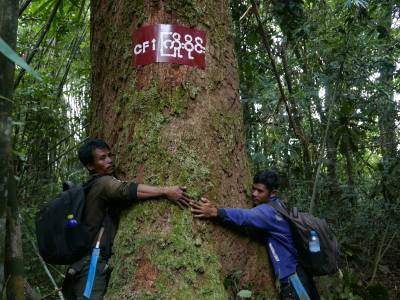
23 January – Phoebe Hamilton-Jones (DEFRA)
"Working on Landscape Recovery: Moving from an Anthropology MSc to Defra"
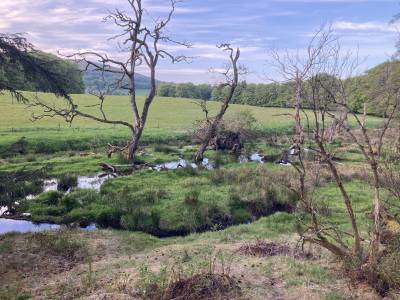
30 January – Marcos Badia Moreu (PhD student, UCL ExCiteS group)
"Crowdmapping for Food and Water Security in Southwest Ethiopia"
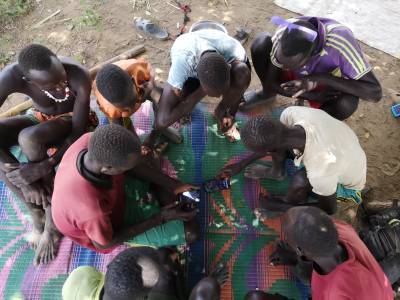
6 February – Dr Daniel Kricheff (Metlife Investment Management, London)
"The landscape of sustainable finance"

20 February – Dr Saad Quasem (Lecturer in Anthropology and Climate Change, SOAS)
"Fluvial Relations: The praxis of Temporariness and Temporality in the Chilmari Chars"
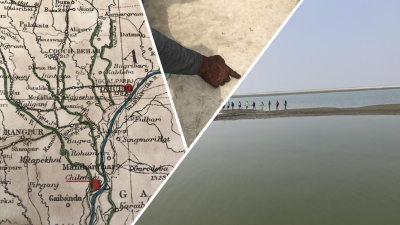
This seminar examines the concept of land and water in the chars (river islands) of Chilmari on the Kurigram district tributaries of the Brahmaputra River. Chars or sand-bars appear and disappear with the flow of the river. Seasonal floods and unpredictable erosion subjects Chardwellers to constantly move from char to char. Living in this watery condition, I present Chardwellers hold a particular notion of temporality having to do with the flows of the river. As such, I argue Chardwellers live in praxis (action) of temporariness manoeuvred by the riverine temporality. Temporariness can best be seen in events and spaces which emerge as a result of riverine temporality- a notion of continuity containing uncertainties which maybe similar to conceptions akin to time in Anthropology. For Chardwellers everyday life consists of the praxis between temporariness and the inherent temporality of the river. The labor exerted then shows perspectives of living on the river tracing the continuities of water. Patching separately colonial history of territorialization to the everyday presence of meta-myths, narratives of storms (present and past) livelihood generating activities, place names and the notion of climatic change, this paper I present the basis of fluvial relations. The fluvial relations pose a challenge to the dominant terracene.
27 February – Dr Morena Mills (Reader in Environmental Policy and Practice and
Director, MSc Conservation Science and Practice, Imperial College London)
"Insights on how, why and when conservation initiatives go to scale"
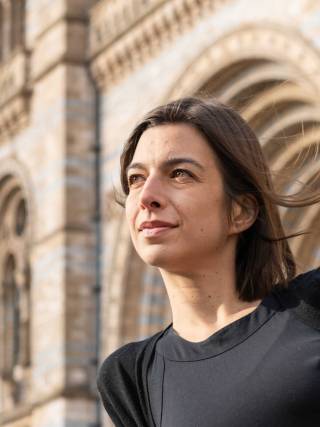
5 March – Dr Shawn Wilson (Opaskwayak Cree Nation, Associate Professor of Indigenous Studies at University of British Columbia; Board of Directors, Tapestry Institute; and Adjunct Professor at Gnibi College of Indigenous Australian Peoples, Southern Cross University)
"How to Incorporate Indigenous Knowledge into Ecology"
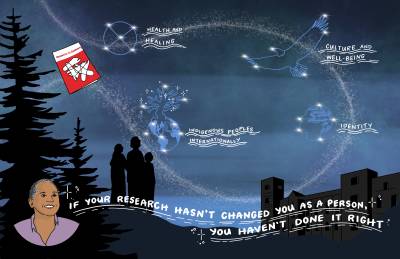
12 March – Sahib Singh (PhD student, UCL Anthropology)
"The Storm of Development, the Waning of Madaita: Aspirations, Value Conflicts and Coal Company Employment"
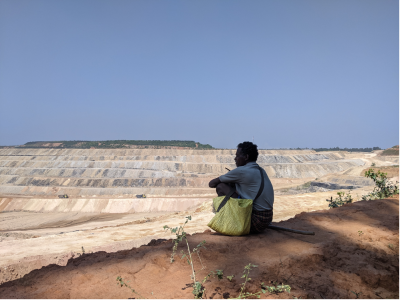
- Autumn 2023
10 January - George Holmes (University of Leeds)
Eager about beavers? Rewilding, landscape, and the (il)legal lethal control of feral beavers in Tayside, Scotland17 January - Sarah Edwards (Oxford Botanic Garden & University of Oxford)
Plants As Medicine in the Anthropocene: Scientific and Indigenous Ontological Perspectives24 January - Megnaa Mehtta (UCL Institute for Risk and Disaster Reduction)
Intimate Antagonisms and Unlikely Friendships between State and Society in the Sundarbans Forests of IndiaForests worldwide are often implicated in histories of violence. The Sundarbans, straddling India and Bangladesh, infamous for its tigers, tiger-demons and home to 5 million human residents sharply expresses this global conflict. However, ethnographic fieldwork encountered co- option, conviviality and mutual care among individuals classically characterised as political antagonists. How might this ‘compassion in repression’ be ruptured?
31 January - Fabien Moustard (Extreme Citizen Science Group, Geography, UCL)
Behind the fence of an eco-guards basecamp7 February - Simon Hoyte (UCL Anthropology)
“The trees, I know their names, I know how they heal”: Health and a 'One Health' project in the rainforest of Cameroon14 February - Reading Week
21 February - Dawn Hill Adams (Tapestry Institute) - in person meeting, speaker online
The World of Indigenous Research Methods[Cancelled] 28 February - Sarah Fischel (UCL Geography)
Caring for Coral: exploring multi-species care and coral restoration in Bonaire[Cancelled] 7 March - Chris Sandbrook (Cambridge University) - in person meeting, speaker online
MSc AED students can instead, if they wish, book to see their dissertation supervisor during this HERG slot14 March - Kew Gardens visit: Ethnobotany lecture and tour for MSc AED students (and interested PhDs)
Hosted by Dr. Mark Nesbitt, Curator of Ethnobotany at Kew, Visiting Professor Royal Holloway and UCL, and his team- Spring 2023
10 January - George Holmes (University of Leeds)
Eager about beavers? Rewilding, landscape, and the (il)legal lethal control of feral beavers in Tayside, Scotland17 January - Sarah Edwards (Oxford Botanic Garden & University of Oxford)
Plants As Medicine in the Anthropocene: Scientific and Indigenous Ontological Perspectives24 January - Megnaa Mehtta (UCL Institute for Risk and Disaster Reduction)
Intimate Antagonisms and Unlikely Friendships between State and Society in the Sundarbans Forests of IndiaForests worldwide are often implicated in histories of violence. The Sundarbans, straddling India and Bangladesh, infamous for its tigers, tiger-demons and home to 5 million human residents sharply expresses this global conflict. However, ethnographic fieldwork encountered co- option, conviviality and mutual care among individuals classically characterised as political antagonists. How might this ‘compassion in repression’ be ruptured?
31 January - Fabien Moustard (Extreme Citizen Science Group, Geography, UCL)
Behind the fence of an eco-guards basecamp7 February - Simon Hoyte (UCL Anthropology)
“The trees, I know their names, I know how they heal”: Health and a 'One Health' project in the rainforest of Cameroon14 February - Reading Week
21 February - Dawn Hill Adams (Tapestry Institute) - in person meeting, speaker online
The World of Indigenous Research Methods[Cancelled] 28 February - Sarah Fischel (UCL Geography)
Caring for Coral: exploring multi-species care and coral restoration in Bonaire[Cancelled] 7 March - Chris Sandbrook (Cambridge University) - in person meeting, speaker online
MSc AED students can instead, if they wish, book to see their dissertation supervisor during this HERG slot14 March - Kew Gardens visit: Ethnobotany lecture and tour for MSc AED students (and interested PhDs)
Hosted by Dr. Mark Nesbitt, Curator of Ethnobotany at Kew, Visiting Professor Royal Holloway and UCL, and his team
 Close
Close

